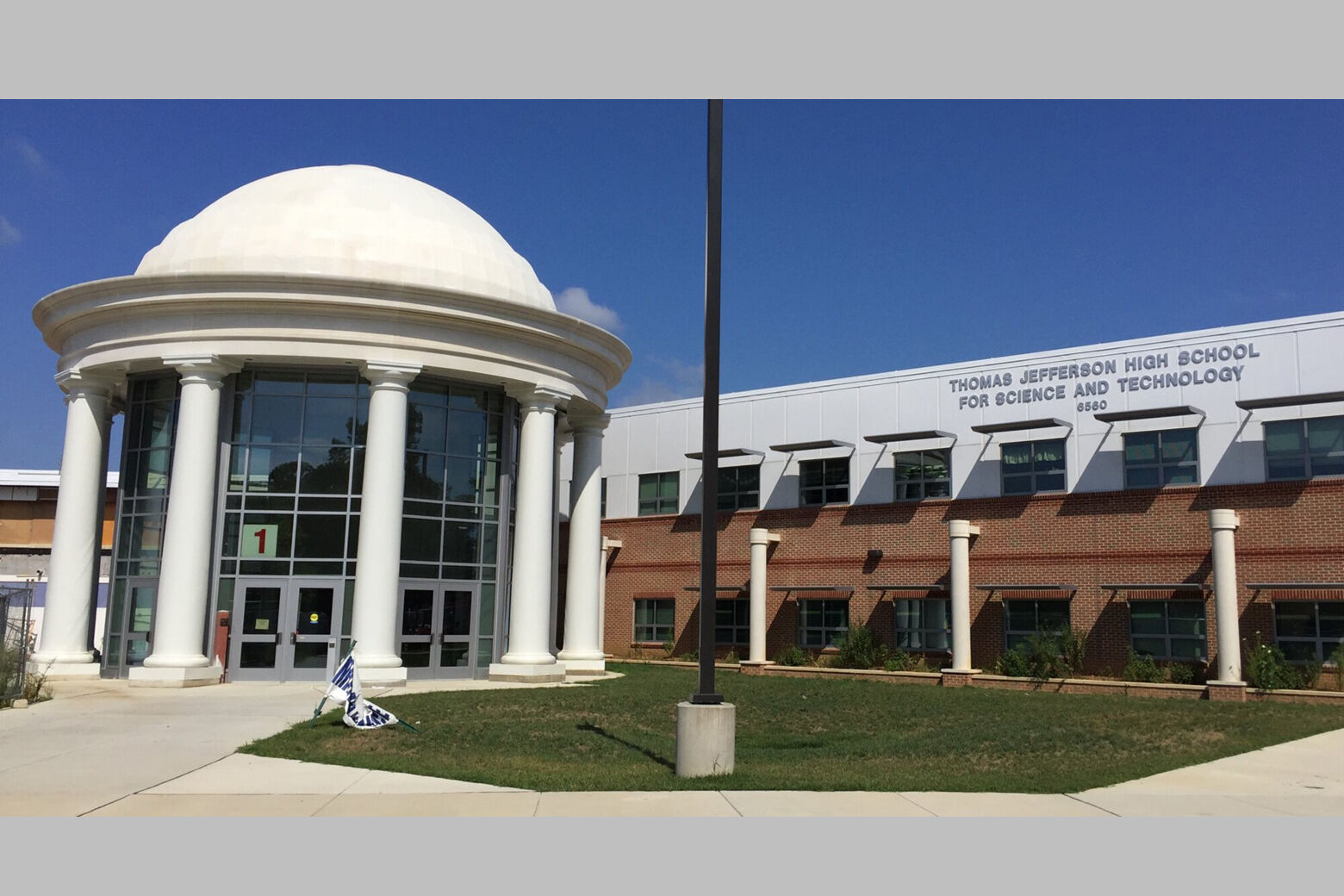Supreme Court won’t hear Thomas Jefferson admissions case
by Nathaniel Cline, Virgnia Mercury
An admissions policy adopted by the Fairfax County School Board in 2020 to promote greater diversity at the elite Thomas Jefferson High School for Science and Technology will remain in place after the U.S. Supreme Court opted not to take up a case challenging it brought forward by a coalition of parents.
The court did not offer a reason for not hearing the appeal of a May 2023 ruling by the Richmond-based U.S. 4th Circuit Court of Appeals. But the decision sparked a dissent from Justices Samuel Alito and Clarence Thomas, who wrote Tuesday that the high court should “wipe” the appeals court ruling “off the books.”
“The Fourth Circuit’s reasoning is a virus that may not spread if promptly eliminated,” said the justices, who accused other schools of using Thomas Jefferson’s admissions model as a “blueprint for evading” the Equal Protection Clause.
Prior to December 2020, Thomas Jefferson’s admissions process relied on a student’s performance on standardized tests, grade point average, writing samples and teacher recommendations.
Over the years, Asian American students made up an increasing proportion of the school’s student body, while percentages of Black and Hispanic students remained persistently low. In 2019, the 4th Circuit noted, 71.5% of Thomas Jefferson students were Asian American, and 19.5% white. In 2020, “data indicated that the number of Black students admitted to TJ’s incoming freshman class was ‘too small for reporting’ — a designation meaning that ‘10 or fewer’ Black students had been extended offers of admission.”
As public anger over the killing of George Floyd grew in 2020, the Fairfax County School Board adopted a series of changes to the school’s admissions process intended to increase the numbers of underrepresented students, particularly Black and Hispanic students.
The new policy eliminated the previous use of standardized tests to cull the ranks of applicants. Instead, a certain number of slots were allocated to each of the 28 middle schools that feed into Thomas Jefferson. Applicants were then considered based on their grade point average, which had to be 3.5 at a minimum, a “portrait sheet” describing their skills, a problem-solving essay, and four experience factors — eligibility for free or reduced price meals, status as an English language learner, eligibility for special education services, and attendance at a historically underrepresented public middle school.
After the admissions policy was instituted, the 4th Circuit noted applications for the Class of 2025 rose by almost 1,000.
“The mean grade point average among those applicants was higher than it had been in five years and, in terms of demographics, the class of 2025 included markedly more low-income students, English-language learners, and girls than had prior classes at TJ,” the appeals court noted. “Notably, for the first time in more than a decade, all 28 middle schools in Fairfax County sent students to TJ in 2021. By contrast, in 2020, eight of the County’s middle schools had received zero offers of admission to TJ.”
However, the changes also produced steep declines in Asian American students, who received only 54% of admissions offers for the Class of 2025. White students received 22% of offers, Hispanic students 11% and Black students 8%.
The Coalition for TJ, an advocacy group of Fairfax County public school parents, has repeatedly challenged the admissions changes, arguing that the changes in admissions were unconstitutional because they discriminated against Asian American students.
In February 2022, the coalition won its case in the U.S. District Court for the Eastern District of Virginia, which ruled the new policy unfairly impacted Asian American applicants. But the U.S. 4th Circuit Court of Appeals overturned that decision in May. The Coalition subsequently appealed to the U.S. Supreme Court.
“Since June 2020, we’ve poured our hearts and souls into this fight, and it’s profoundly disappointing to see the justices end our legal battle,” the coalition stated.
Alito and Thomas’ dissent “serves as a rallying cry, reminding us of the importance of our cause and urging continued vigilance in combating proxy discrimination,” the coalition said.
The Fairfax County School Board praised the decision.
“We have long believed that the new admissions process is both constitutional and in the best interest of all of our students. It guarantees that all qualified students from all neighborhoods in Fairfax County have a fair shot at attending this exceptional high school,” said board Chair Karl Frisch in a statement.



